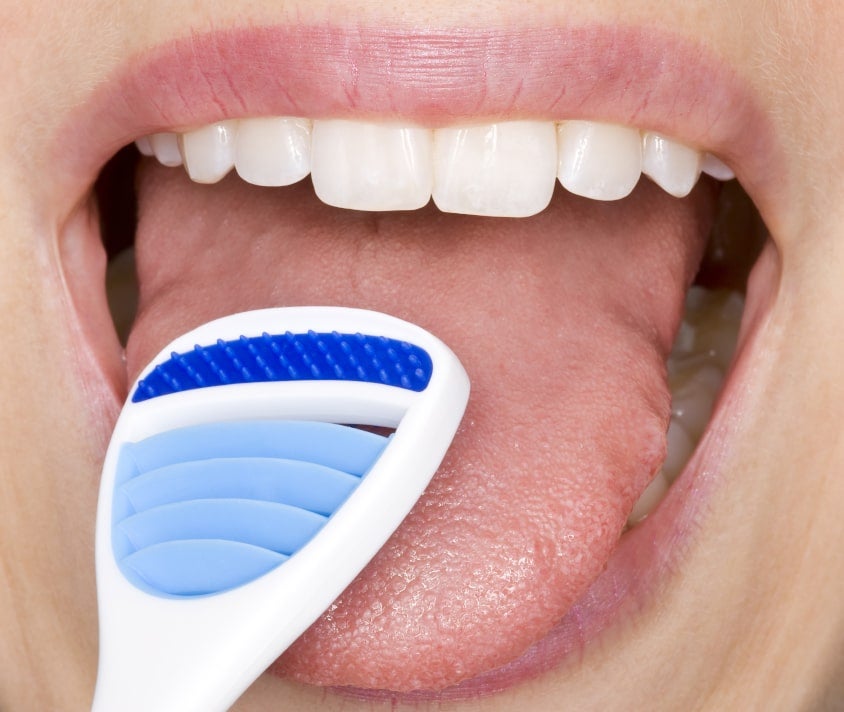This article will take you 5 minutes to read
Dental problems, particularly those affecting the gums, can significantly impact a person's mental well-being. Issues such as increased stress, low self-esteem, and even depression can arise from unaddressed gum problems. This connection highlights how oral health can influence an individual's overall quality of life and potentially exacerbate existing mental health challenges.1
The Connection Between Gum Health and Mental Well-being
Poor oral health can affect various aspects of a person’s daily life, including eating, speaking, and self-esteem. These challenges can lead to reduced social interactions and negatively impact mental well-being.
Individuals with mental health conditions often experience anxiety related to dental care, causing them to avoid necessary care. This can create a cycle where chronic oral pain worsens mental health, making it more difficult to manage existing conditions.
Additionally, symptoms of mental illnesses may result in poor nutrition and difficulty maintaining effective daily dental care routines, further compromising oral health and creating barriers to accessing needed dental care.2
How Stress Can Impact Gum Health
Stress affects not only your overall well-being but also your oral health, particularly your gums. Here are several ways stress can impact your oral health:
- Weakened Immune System: Stress can weaken your immune system, allowing bad microorganisms in your mouth to attack your gums. If unaddressed, this can lead to severe gum problems. To protect your gums during stressful times, ensure you maintain a solid dental hygiene routine, including regular flossing.
- Teeth Grinding: Commonly associated with stress, teeth grinding often occurs during sleep. This can wear down dental enamel, cause jaw discomfort, and lead to more serious dental issues. If you wake up with a sore jaw, stress-induced teeth grinding might be the cause.3
- Mouth Sores: Stress can tire your immune system, making you more susceptible to mouth sores. Listen to what your body is trying to tell you. Frequent mouth sores may indicate excessive day-to-day stress, signaling the need to address your stress levels.4
- Dental Cavities: Stress can lead to unhealthy eating habits, such as consuming more sugary and starchy foods, and neglecting oral hygiene routines. These behaviors often result in dental cavities.5
Mental Health Conditions and Their Effect on Oral Care Habits
Living with depression and anxiety can make it challenging to prioritize oral health. Simple daily tasks like brushing your teeth or scheduling dental appointments can feel overwhelming, increasing the risk of developing oral health issues like tooth cavities or gum problems.
That’s not everything! Teeth grinding can be a manifestation of a mental health condition, further affecting your teeth. Some individuals may also turn to overeating as a coping mechanism, often choosing sugary and fatty foods that negatively impact oral health.6
When to Seek Help for Oral and Mental Health
Not every unusual condition qualifies as a mental health disorder, and not every instance of sadness indicates depression. The Diagnostic and Statistical Manual of Mental Disorders (DSM), published by the American Psychiatric Association, outlines the signs and symptoms used to diagnose mental health disorders based on their nature, duration, and impact.
Generally, if a condition affects your social relationships with family, friends, and partners, or impacts your work and academic performance, it may be time to consult a mental health provider.7 Seeking professional help can provide the necessary support to effectively manage both your mental and oral health.
To conclude, individuals with mental health problems are more likely to experience oral health issues compared to the general population.8 This highlights the importance of a comprehensive approach to healthcare that emphasizes maintaining both mental well-being and good oral hygiene for overall health.
Frequently Asked Questions (FAQs)
What are some common myths about gum health and mental health?
A common myth is that gum problems only affect physical health, overlooking their impact on mental well-being. Another misconception is that stress and depression don’t influence oral health, when they can lead to poor hygiene and serious gum problems.9
When should someone seek professional help for gum health or mental health issues?
If loved ones notice disruptive behavior or significant changes in mood and functioning, it's important to seek professional help promptly. Early intervention can be highly effective.10
What role does oral hygiene play in mental health?
Poor oral hygiene can impact eating, speech, and self-esteem, reducing social interactions and negatively affecting mental well-being.11
References
6The Link Between Dental Health and Mental Health (clevelandclinic.org)
7Mental health: What's normal, what's not - Mayo Clinic



